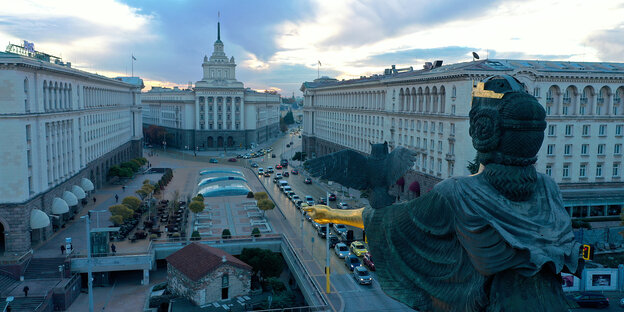After renewed coalition wrangling, Bulgaria is making its sixth attempt to hold parliamentary elections. Only the pro-Russian party benefits from this.

View of the Parliament building in Sofia Photo: imago
Bulgaria, a country of the EU and NATO, can aspire to the title of “European champion at the polls”. The government was in power for just under nine months and now new elections must be held.
The coalition of two alliances of pro-Western parties, which is by no means a love match, failed mainly due to the personal ambitions of the leaders. Even the best rotation model, consisting of a change in the position of prime minister after nine months, is of no use if those involved do not respect the agreements and, instead, fight like tinkerers for ministerial positions.
Now Bulgarians will have to decide again on the composition of the Sofia parliament on June 9, coinciding with the EU elections. This is the sixth event of its kind in just three years. Certain signs of fatigue were already evident in April 2023, when voter turnout only reached 40 percent. It probably won't get much better the next time you try it. This in itself would not be a problem: in other EU member states there are also small numbers of people at polling stations.
However, there are two other unpleasant aspects: it is foreseeable that this vote will not produce a clear majority. Even more unpleasant is the prospect of a strengthening of the far-right Vasrashdane (“Renaissance”) party, which won 14 percent of the vote in the last election. The fact that it is possible to take advantage of hate speech against minorities and the EU, as well as pro-Russian positions – especially in the context of the war in Ukraine – is not a unique selling point for Bulgaria, but it does not improve the things. better.
Sofia is working towards full membership of the Schengen area, and membership in the eurozone is also on the agenda. The expected political stalemate will make these steps towards greater integration more difficult. This is what the Balkan state needs most at the moment.